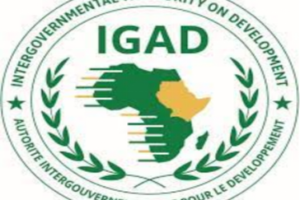
It is a fact that trans-boundary natural resources, like the Abbay River, have been the focal point for many geopolitical and economic matters. Nations that share the same resources must come to the table to discuss ways to cooperate for mutual benefits. In the case of the Nile River, there are around 11 nations that share the water though the river is unfortunately connected to some nations like Egypt. In addition, 85 percent of the water comes from Ethiopia’s Abbay River, and the rest is from the upper riparian countries.
To achieve the desired objective of ensuring comprehensive and fair utilization of natural resources, crafting an extensive agreement like the Nile Basin Cooperative Framework Agreement (CFA) is a way. The deal is expected to put the Nile Basin countries in a better position for fair and equitable natural resource utilization amidst challenges that pulled its effectiveness.
Based on their geographic position, the Nile basin countries are categorized under two positions, upper and lower riparian countries.
When it comes to utilizing the Nile River, both positions have different interests in utilizing the water resource. The origin countries and the upper riparian and the lower riparian nations have stood on different sides. In the past many years, lower riparian countries have been the sole advantageous nations to use the water for their interest. Whereas, the other side of the river, that is the origin of the water, have been bystanders.
In various documents, the colonial agreement which highly supports the low riparian countries with full access to the water could not be imposed on other nations like Ethiopia which has not seen the colonialism burden. When Ethiopia plans to utilize its natural resource, the Abbay River, to support its people, the nation knows how to deal with its neighbors and is willing to discuss the matter at any level. The country also understands the use of a comprehensive platform that can foster a fair distribution of advantages.
According to a recent report, the long-awaited Nile River Basin Cooperative Framework Agreement (CFA) has officially come into effect, paving the way for the establishment of the Nile River Basin Commission (NRBC). This marks a significant milestone in the efforts of Nile Basin countries to create a legal and institutional framework for the management and equitable use of the Nile River.
The Ethiopian Minister of Water and Energy, Habtamu Itefa, hailed the decision as a testament to the collective resolve of the Nile Basin countries to work together for mutual benefit. In a statement shared with Capital, the Ministry emphasized that the CFA represents a historic step toward rectifying long-standing imbalances in the access and use of Nile waters.
“The establishment of the Nile River Basin Commission (NRBC) will manage and safeguard the Nile River for the benefit of all countries involved and serve as the cornerstone of our cooperative efforts,” Habtamu Itefa said. The NRBC will be responsible for coordinating cooperation among the Basin states and ensuring the sustainable management of the Nile’s resources.
The CFA, which has been ratified by Ethiopia, Rwanda, Tanzania, Uganda, Burundi, and, most recently, South Sudan, recognizes the legitimate needs of all Nile Basin countries and commits them to equitable sharing of the river’s waters. The agreement also underscores the importance of sustainable development, cooperation, and regional integration. It is a major step in resolving historical inequities, as it ensures that all Nile Basin nations can benefit from the shared water resource.
Habtamu highlighted the importance of thinking beyond the present: “We must use the resources of the Nile not just for today, but for the generations that will come after us. The CFA ensures that we protect the Nile and its ecosystems, utilizing its waters in ways that do not jeopardize the future.”
The agreement, which took years of negotiation to reach, represents the first multilateral effort to create a comprehensive legal framework governing the Nile’s use. The CFA’s entry into force is particularly significant as it reflects the growing regional consensus around the need for cooperation over conflict. It calls for the equitable and reasonable use of the Nile’s waters, a crucial point of contention among Nile Basin countries, particularly Egypt and Sudan, which have so far refused to sign the agreement.
While upstream countries such as Ethiopia, Rwanda, Uganda, and Tanzania have embraced the CFA as a step toward fairer access to Nile waters, Egypt and Sudan remain opposed. For Egypt, which relies heavily on the Nile for its water supply, the Grand Ethiopian Renaissance Dam (GERD) on the Blue Nile has been a particular source of tension, with concerns that it may reduce the country’s water share. Egypt has continued to push for a binding agreement on the dam’s operation and filling process.
Accordingly, the recent ratification of the Nile Basin Cooperative Framework Agreement (CFA) by six Nile Basin countries represents a pivotal advancement toward a fair and sustainable approach to managing the river’s vital resources, said Professor Ya’akob Arsanow, Hydro Politics scholar at the Addis Ababa University’s Department of Political Science and International Relations.
The CFA has been a central topic of discussion among Nile Basin countries for years, now backed by parliamentary ratifications in six member states. This milestone reflects a commitment to ensuring equitable water use based on established legal principles, it was learned.
Professor Ya’akob Arsanow observes that the CFA marks the end of an era that upholds the benefit of a few countries from this shared water resource as it ensures equitable water sharing among all riparian nations.
“A fair and equitable water use system is established through agreements made between 1999 and 2010. Thirteen years later, each participating country has signed the agreement, which has been ratified by their parliaments,” he stated.
According to Professor Yakob, “This Nile Agreement marks the end of an era that primarily advantages a few nations. The basic legal framework for water use is now in place, governed by law, and aims to facilitate fair water sharing among all involved countries, preventing monopolization by a select few.”
Under the agreement, the countries involved are expected to adopt a legal framework that upholds its principles, ensuring equitable sharing of water resources and diminishing the exclusive rights previously held by few nations. Regarding Egypt and Sudan, he pointed out that these countries have historically sought to utilize the Nile’s waters exclusively through their agreements.
“Because some parties, particularly Egypt and Sudan, do not accept the agreement, they may wish to continue exploiting water resources solely for themselves, arguing that the entire water wealth belongs only to them. This creates inequality among the countries and underscores the necessity for a legally sound and equitable water use system to avert conflicts.”
He said that both countries should come to their senses and join CFA as most of the members are source countries where the Nile River originates. The CFA highlights the ongoing demand for equitable sharing of water resources, emphasizing the critical need for a fair legal framework to address these challenges.
BY STAFF REPORTER
THE ETHIOPIAN HERALD THURSDAY 7 NOVEMBER 2024




